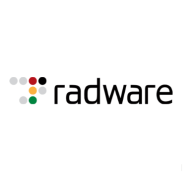


Radware Alteon and Azure Front Door compete in the application delivery category. Azure Front Door seems to have the upper hand due to its performance and scalability, while Radware Alteon excels in customization and integration.
Features: Radware Alteon offers robust application delivery capabilities with a focus on security, SSL offloading, and customization for load balancing. It provides high availability and stability with seamless integration into existing networks. Azure Front Door features a powerful web application firewall, efficient load-balancing, and a globally distributed network that is easy to deploy, making it ideal for businesses aiming for a global presence.
Room for Improvement: Radware Alteon needs improvements in automation and reporting, along with enhanced integration tools to handle false positives better. Azure Front Door could benefit from greater cost-effectiveness, better adaptability in hybrid environments, and more flexible rules engines.
Ease of Deployment and Customer Service: Radware Alteon supports both on-premises and hybrid cloud deployments, receiving positive feedback for its technical support but requiring faster response times. Azure Front Door, being cloud-centric, allows easy deployment in public and hybrid clouds and is commended for its technical support, though efficiency in managing complex cases could be enhanced.
Pricing and ROI: Radware Alteon's competitive pricing and flexible licensing options are appreciated, especially against high-cost alternatives. Azure Front Door employs a pay-as-you-go model, considered reasonable although transitioning to premium increases costs. Both solutions demonstrate substantial ROI, with Radware Alteon quickly achieving payback periods and Azure Front Door excelling in scalability and global cost management.
WordPress security can be tricky, and that's where Cloudflare can be absolutely helpful for small businesses.
We have had ROI with the tool's use since it never gave us downtime and made us lose millions.
For the small project I was working on, using the basic tier provided a huge improvement at zero cost.
Azure Front Door offers a quick return on investment once it is set up.
This would help us address issues promptly, especially during unforeseen events like DDoS attacks.
We'd like a dedicated account manager.
You can get a support engineer with the best qualifications.
I am able to set up a critical call with Microsoft, and they respond quickly to tickets with the highest severity.
We never face support issues, and their team resolves any critical issues quickly once they are involved.
There is a dedicated expert answering even the toughest questions.
I would rate the solution's scalability a ten out of ten since I didn't encounter any issues with it.
I rate its scalability a ten out of ten because I had no issues with it.
I rate the scalability a ten out of ten.
I find that Front Door can become expensive for large-scale projects with more transactions and users.
I consider the scalability of Azure Front Door to be strong.
It handles peak loads and thousands of concurrent connections without exceeding 10% utilization.
I would rate it a nine out of ten for scalability.
For DDoS protection, I would not recommend Cloudflare.
I rate the solution’s stability an eight out of ten.
The service is very stable with no impacts during high-traffic periods.
I rate Azure Front Door's stability a nine because it is easy to make updates through Azure Portal.
We've never faced downtime, even during peak transaction hours.
There's a need for improvement in areas like AI-based DDoS attacks and Layer 7 WAF features.
Despite these challenges, overall, Cloudflare remains the preferred solution compared to Azure, AWS CloudFront, and Google Cloud Armor.
the ability to integrate with the on-site active directory instead of just AD through Azure AD
If I could use Azure Front Door with private IP addresses, it would be more beneficial.
The only significant adjustment required is with URL set parameters that need to be passed for an existing domain.
They keep integrating new features that sometimes break our production, but we use clustered systems, so we can test those software releases.
Other OEMs offer free courses and hands-on labs on new technologies and features, which we find useful.
That's where Cloudflare shines for smaller businesses – it's ten times cheaper than Akamai.
I find it to be cheap.
It's cost-effective, but I think they should have a custom pricing model for enterprise customers based on the features you use.
Azure Front Door is cheaper for small projects, companies, or applications compared to using separate tools.
For our solution, it was right in the middle of price performance.
The cost of the Radware solution is reasonable and stable.
Our scenario consisted of two web servers in different allocations to control access demands, and the load balancer did the job as expected, bringing security and stability to access points.
For me, the valuable feature is DDoS protection.
The most valuable features of the solution are performance and security.
Azure Front Door provides DDoS protection and features related to WAF.
Azure Front Door includes a built-in web application firewall, which performs signature-based checks of the request payload, offering protection against common attacks or malicious requests.
The product allows us to manage multiple networks and VLANs into a single box and add numerous web services and farms efficiently.
I find the best features to be the flexibility and ease of use.



Cloudflare is a highly-regarded Content Delivery Network (CDN) and a Distributed Denial-of-Service (DDoS) protection solution. The robust global connectivity cloud platform that is Cloudflare ensures users are able to connect to the Internet quickly, securely, and reliably. Cloudflare is one of the world's largest networks in the marketplace today. Using Cloudflare, businesses, educational entities, NGOs, vloggers, bloggers, and anyone else with an internet presence can experience more secure, faster websites and applications.
Currently, there are millions of Internet locations on Cloudflare, and the Cloudflare network
continues to grow every day by the thousands. The solution is able to fulfill the requests for
millions of websites seamlessly and serves on average 45 million HTTP requests per second.
Cloudflare has safe, secure data centers in close to 300 cities worldwide to ensure every
client request is filled as quickly as possible. It is Cloudflare’s edge network that makes this
possible by keeping content and other services as close to each client as possible, so the
information requests are always only seconds away.
Many organizations that work in democracy, civil society, human rights, or the arts are able to
access Cloudflare's highest levels of protection for free via Project Galileo. Additionally, official
election websites can be secured from hacking and fraud through Cloudflare’s Project
Athenian, also at no additional cost.
Cloudflare can also help organizations of all sizes develop a robust zero-trust strategy to
ensure the highest levels of productivity and profitability. Employees, stakeholders, and end users have a greater level of satisfaction and overall improved user experience, which can, in
turn, result in higher revenues and overall ROI. Zero-trust and BYOD (bring your own device)
access ensure end users and employees always have the best resources and technology
available to them at all times.
Cloudflare benefits
Cloudflare has many benefits. Some of its most valuable benefits include:
- Faster load times
- Robust DNS security
- Intuitive cloud Web Application Firewall (WAF)
- Free universal SSL
- Image enhancement
- Automatic browser caching
- Next-generation cloud load balancer
- Accelerated Mobile Pages (AMP)
- Rate limiting
- Minification
- Zero-trust capabilities
- Cost-effective
- Reduced carbon footprint
Reviews from real users
“Many websites require an SSL certificate because they sell stuff and want SSL. Cloudflare
comes with an SSL certificate built in. It's automatic. You sign yourself up for Cloudflare, and
an SSL certificate automatically protects your website. If you have a connection between your
website and your host, the server, Cloudflare, and the host, you don't necessarily need a
certificate.” Spencer M., Owner at Tech Exchange
“What I like best about Cloudflare is that my company can use it to trace and manage
applications and monitor traffic. The solution tells you if there's a spike in traffic. Cloudflare
also sends you a link to check your equipment and deployment and track it through peering,
so it's a valuable tool.” Daniel P., Network Engineer at Ufinet
“The most valuable feature of Cloudflare is the GUI. You are able to control the solution very
well through the interface. There is a lot of functionality that is embedded in the service.” PeerSpot user, Competence Center Manager at a tech services company
Azure Front Door is employed for securing external traffic, global load balancing, integrating web application firewalls, enabling disaster recovery, and enhancing application accessibility.
Organizations leverage Azure Front Door to support data publishing, act as a CDN, and ensure low latency for global users. Clients use it to protect numerous internet-accessible applications, integrate with DNS, and implement custom routes. Favored for caching web content and securely, efficiently distributing traffic to backend services, Azure Front Door offers SSL offloading, traffic inspection, and global scalability. Users value its affordability, ease of implementation, and web application firewall. Azure Front Door provides rich security features, traffic management, and URL rewriting. Load-balancing capabilities enhance performance with additional content security policies and bot protection. Integrations, including with GitOps, along with combined CDN and load-balancing, are also highlighted.
What are the most important features?Azure Front Door finds usage across multiple industries due to its versatile applications. E-commerce companies benefit from improved global accessibility and speed, while financial institutions leverage its security features for protecting sensitive data. Media and entertainment sectors use its CDN capabilities for seamless content delivery, and healthcare providers rely on its compliance and protection standards for patient data security.
Radware Alteon is an application delivery controller (ADC) solution that provides global load balancing for all web, cloud and mobile-based applications. The solution is designed to help your organization simplify operations while ensuring resilience and SLA. It manages application traffic across both data and cloud center locations, optimizing availability and performance. In addition, Radware Alteon integrates multiple application protection services to provide protection against an array of cyberthreats.
Radware Alteon Features
Radware Alteon has many valuable key features. Some of the most useful ones include:
Radware Alteon Benefits
There are many benefits to implementing Radware Alteon. Some of the biggest advantages the solution offers include:
Reviews from Real Users
Below are some reviews and helpful feedback written by PeerSpot users currently using the solution.
PeerSpot reviewer Jefe de implementaciones de Datos at RETO Industrial S.A. de. C.V., mentions, “The simple and well-documented configuration allows us to be able to implement new balancing services at the request of the user with the same conditions and good service that they expect. We can also make changes to services that are already running, as I mentioned before, the graphical interface is very intuitive and you can almost always make the most common changes quickly. Radware has been characterized by being extremely robust. This gives us the confidence to offer our users a continuous service.”
A director of consulting says, “The most valuable features are the load-balancing and reverse proxy. Global-load balancing as well is valuable. I also find it to be stable. To date, we have not had any issues with it.”
An SOC Specialist at a tech services company explains, “The interface is easy, it's friendly, and has good alerting. When you have a problem with a server, it will alert you. It is useful in many areas, especially for web applications and load balancing. It's something that the customer can see on the internet.”
We monitor all Web Application Firewall (WAF) reviews to prevent fraudulent reviews and keep review quality high. We do not post reviews by company employees or direct competitors. We validate each review for authenticity via cross-reference with LinkedIn, and personal follow-up with the reviewer when necessary.